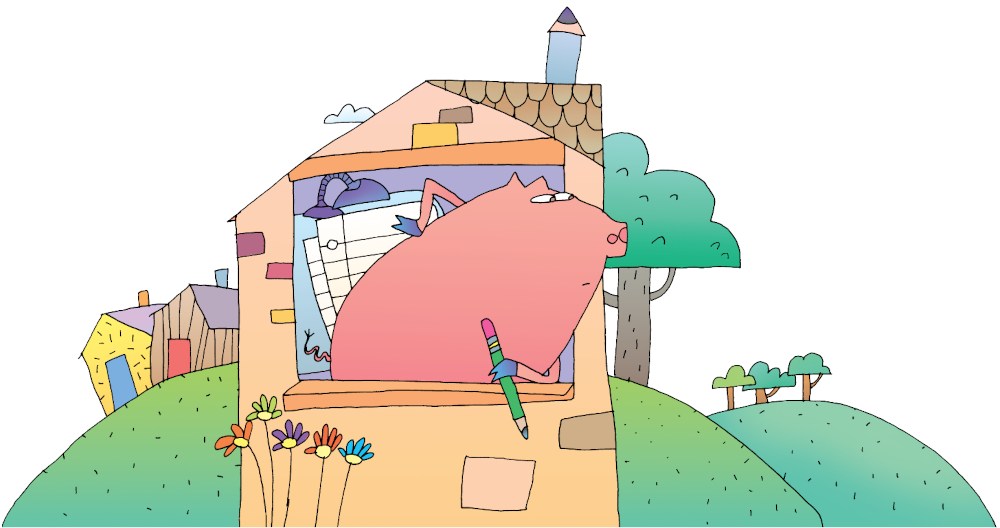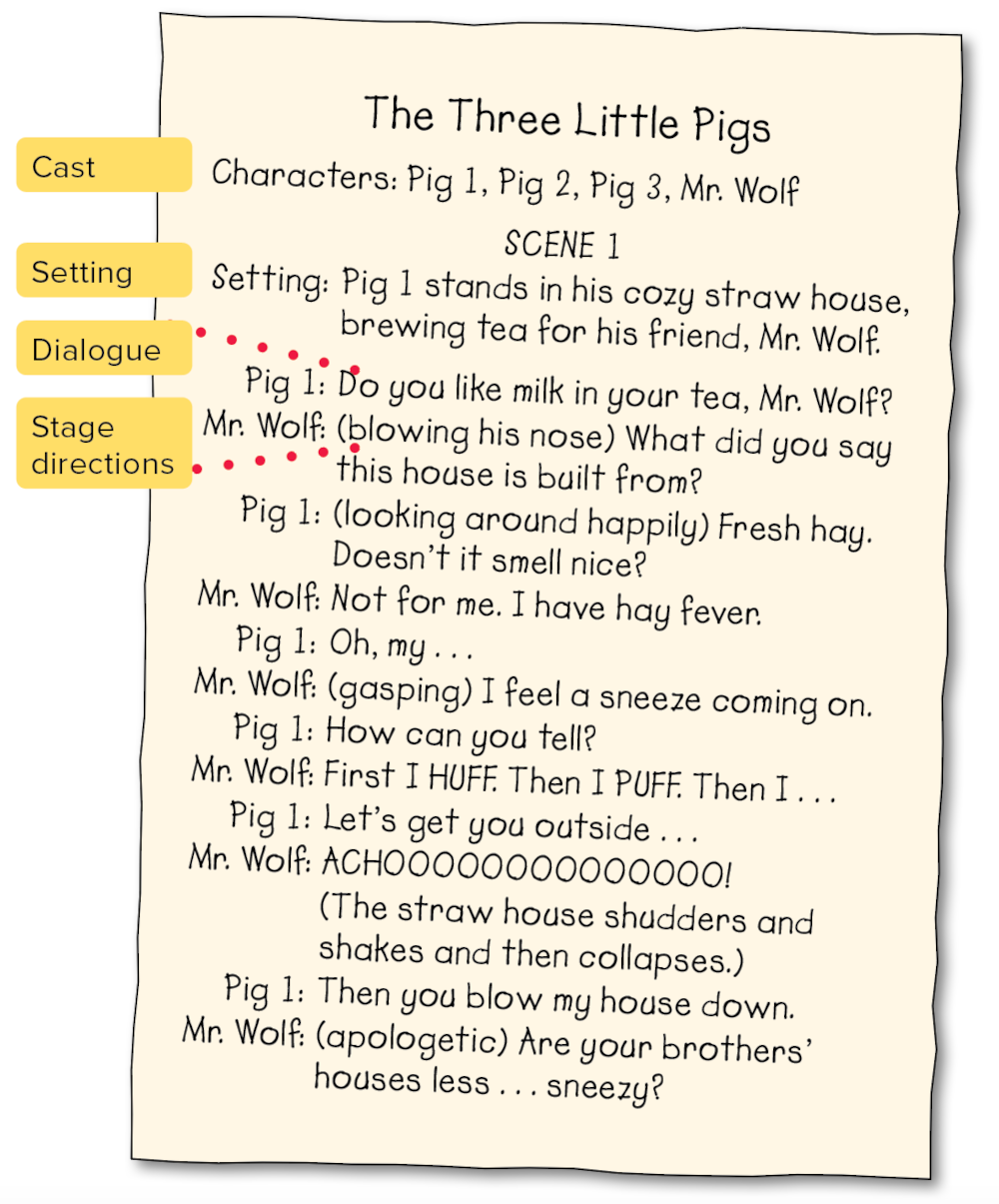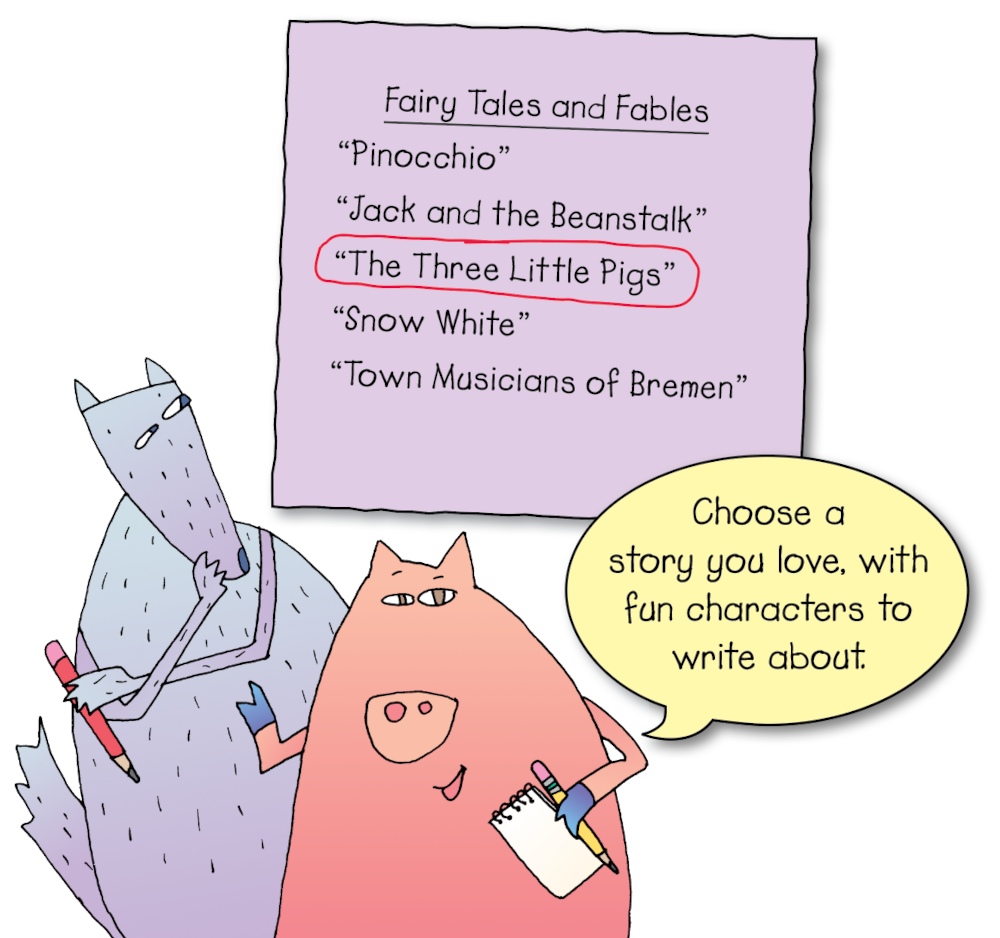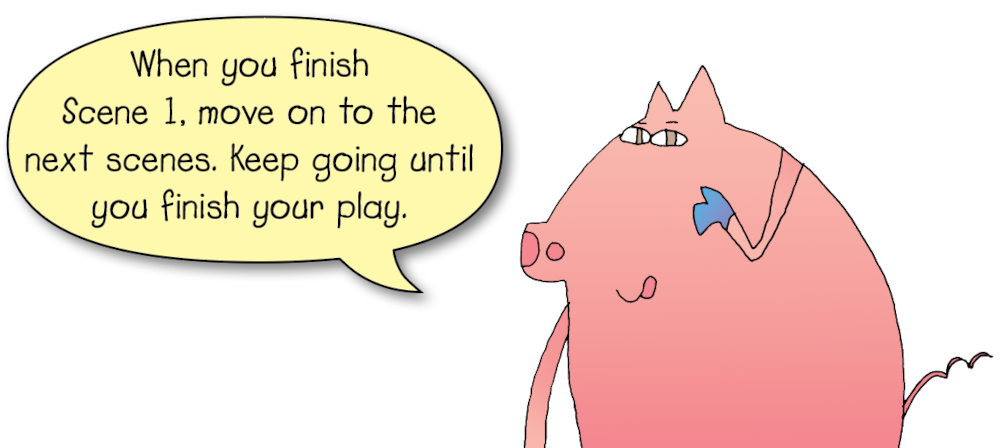WT 190
Page 190
Writing Plays
Who are your heroes? Do you pretend to be them, acting out scenes with friends? That’s just like creating a play. You put a group of characters in a situation and see what they say and do. Writing a play is just a matter of recording what happens with your heroes.
Finding Ideas for Plays
You can write a play about just about anything. Your play could feature real people or favorite characters from a book or movie. You can even write a play based on a fairy tale. This chapter will help you turn a story into a play. On the next page, you can see what a play looks like.

WT 191
Page 191
Sample Play

WT 192
Page 192
Writing a Play
Prewriting
Select a Story 🟪 What fairy tales and fables do you enjoy? Browse a book to think of possibilities. Write down stories that interest you, and circle one story that you would like to turn into a play. Here’s a list one student made:

WT 193
Page 193
Plan the Scenes 🟪 Write down the most important scenes in your story. Each time your story shifts location or time, you have a new scene. The student who reimagined “The Three Little Pigs” wrote this list of scenes:
SCENE 1
In his straw house, Pig 1 serves tea to his friend, Mr. Wolf. Mr. Wolf is allergic to hay and accidentally sneezes down the straw house.
SCENE 2
In their stick house, Pigs 2 and 1 entertain their friend, Mr. Wolf. He greedily eats dinner, wondering why Pig 3 couldn’t be there with them. Mr. Wolf starts to huff and puff, allergic to mold in the sticks. He sneezes, accidentally knocking the stick house down, too.
SCENE 3
In their brick house, Pigs 3, 2, and 1 serve dessert to their friend, Mr. Wolf. He’s in the middle of gobbling ice cream when he turns on the pigs: “Now I’ll eat you—my real dessert!” The pigs step out, slamming barred doors and windows in place to imprison the wolf: “Now you have your just desserts!”
SCENE 4
The three little pigs hold a block party outside the brick prison. Little Red Riding Hood, Peter, the Seven Little Goats, and all others who had been victims of the Big Bad Wolf gather to celebrate.
WT 194
Page 194
Writing a Draft
Set Each Scene 🟪 At the beginning of each scene, indicate where and when action takes place. (See the setting on page 191.)
Write Dialogue 🟪 Write what characters say to each other. The dialogue should tell your story. Have your characters speak in a way that fits their personalities.

Include Stage Direction 🟪 In parentheses, write actions that the characters do. Put short stage direction into dialogue, as shown above. Put longer stage direction in separate paragraphs.

WT 195
Page 195
Revising
Read and Review 🟪 Use these questions as you revise your play.
🟪 Does each scene show an important event in the story?
🟪 Does dialogue sound natural?
🟪 Do dialogue and stage direction tell the whole story?
🟪 Does dialogue sound natural?
🟪 Do dialogue and stage direction tell the whole story?
Share Your Script 🟪 Have friends or family members read your play out loud. Ask their opinions. What parts work well? What changes would help?
Editing & Proofreading
Check for Errors 🟪 Fix any problems with spelling, punctuation, capitalization, and usage. Then follow the form on page 191 and write a neat final copy of your play.
Perform Your Play 🟪 Choose actors and assign parts. Have actors memorize dialogue and learn stage direction. Costumes and props are a nice touch, too. Or hold a readers’ theater: characters read the script with enthusiasm but don’t need memorization, costumes, or props.
